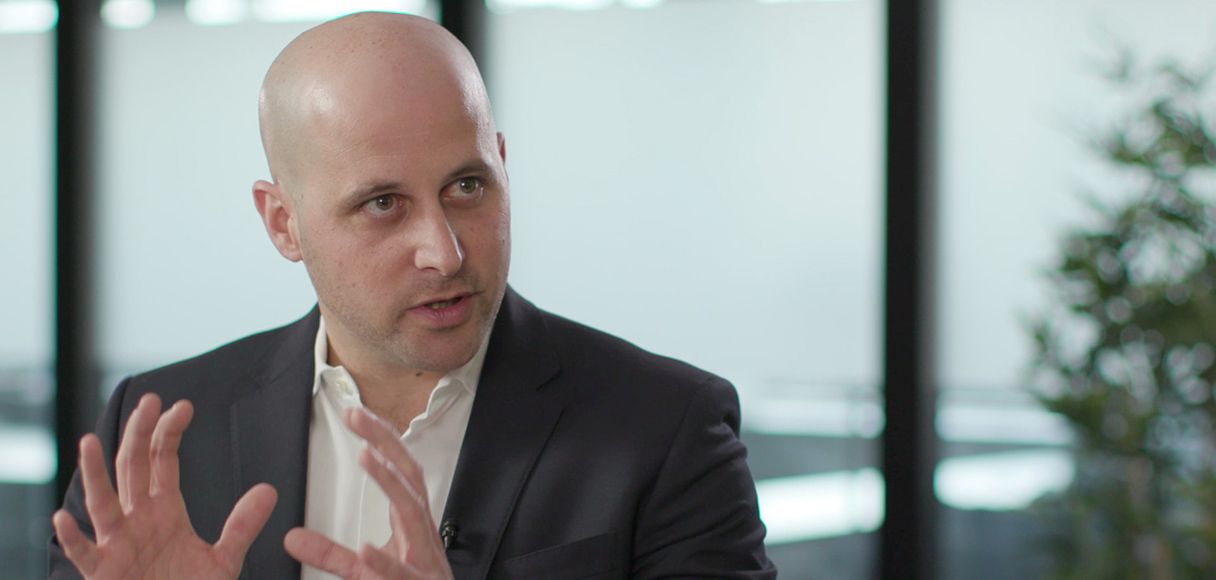
Demographic developments mean that the need for foodstuffs will increase by 60% by 2050. Today, a third of all foodstuffs are lost or end up in landfill. As a result, the production, distribution and consumption of foodstuffs must, and will, undergo dramatic changes over the next few years. In this interview, Elad Ben-Am explains why Picard Angst has launched The Food Revolution, a fund that enables investors to play a role in shaping this upcoming transformation, letting them benefit from the enormous potential inherent in this shift.
What’s behind The Food Revolution?
In business, the term inefficiency refers to a situation where resources are not used in the optimum way. In line with this definition, our food sector can be termed exceptionally inefficient.
Every year, we manufacture foodstuffs with a total value of around USD 8 billion, or 10% of the world’s GDP. To produce this 10%, our food sector generates 26% of global emissions, employs a third of the world’s workforce and uses half of the planet’s habitable landmass. These figures reflect the low level of digitisation and automation, and an exceptionally inefficient, unsustainable usage of resources.
Globally speaking, food production is responsible for

10% of GDP

26% of greenhouse gas emissions

50% of the usage of habitable surtace area

70% of freshwater consumption
Source: United Nations
This dirty legacy makes our global agri-food system a source of significant external costs, i.e. costs related to environmental and health damages or malnutrition, which are not reflected in the price of food (and are hence referred to as invisible costs). According to estimates of the World Bank, these external costs of the global food production account for USD 6tn or 75% of the yearly food production value (visible costs), resulting in significantly higher “real costs” of food production. This market failure results in false incentives and a structural overuse of natural resources, the consequences of which are becoming increasingly visible.
Food production causes external costs of 6 trillion USD. They need to be internalised, step by step.
In recent years we have seen a rising pressure to internalize these external costs, driven by a growing public awareness for environmental and health issues as well as society’s decreasing willingness to bear these costs on behalf of the agri-food system. This, in combination with a better-informed and more critical consumer, poses enormous challenges for a traditionally sluggish industry and stands at the core of the Sustainable Food Revolution.
The global food industry is dominated by large multinationals, all of which emphasize the importance of sustainable and healthy food. At the same time, the vast majority of these companies sits on huge, historically grown portfolios, dominated by sugar, plastic, meat etc. and is facing a growing pressure to adjust. These Old Food firms face an emerging competition from innovative agile companies, which are the main actors in this Food Revolution and provide tremendous investment opportunities.
How can investors benefit from The Food Revolution?
Investors who want to invest into The Food Revolution face one major challenge: How can they build exposure to pure-plays in the industry, that are benefiting from the structural shift towards a more efficient and sustainable agri-food system, while keeping the ‘dilution’ from structurally challenged Old Food as small as possible?
Our Food Revolution investment strategy is built around 6 structural sub-themes, which are addressing the inefficiency of the global food industry and should hence see significant structural growth in the years to come.
6 Megatrends

Automation and agritech

Food safety & clean label

Alternative proteins

Sustainable packing solutions

Organic, healthy and functional food

New forms of consumption
We invest into 40-50 pure-plays along the value chains of these themes. With 80% of all listed agri-food firms (accounting for 90% of the cumulated market cap) being ‘Old Food’ companies, this strategy requires an a small-/mid-cap oriented, active and global approach, that covers the entire agri-food value chain ‘from farm to fork’.
Why investing now into ’The Food Revolution’?
The shift towards a more sustainable and efficient agri-food system is a structural multi-year process, which is gaining a lot of traction in terms of public and investors’ attention.
A growing Venture Capital activity is generally a good indicator for the level of technological innovation in a given industry. In the past 7 years, the Agtech and Foodtech Venture Capital deal value has grown more than eightfold, compared to the overall Venture Capital market, which has grown by 2.5 over the same time period. As a result, the Agtech and Foodtech VC value has reached some 4% of the total VC market, up from 1% in 2014, but still well below the agri-food share of global GDP (10%).
Over the past seven years, venture capital for Agtech and Foodtech has increased eight-fold.
This is good news for our ‘Food Revolution’ investment strategy. With Agtech and Foodtech VC volume spiking in recent years, we should see a growing number of exits and IPOs in the years to come, resulting in an expanding ‘Food Revolution’ stock universe and eventually higher valuations, as new money is being attracted. We have seen similar developments in other industries in the past, e.g. Biotech.
In addition, we just lived through a very eventful year. 2020 brought us a number of powerful catalysts for the ‘Food Revolution’, pushing the industry to what we consider to be a ‘point of no return’ and further accelerating ‘The Food Revolution’. These catalyst events include the pandemic itself, which reminded us painfully of the crucial role nutrition plays in overall health, the meat scandals in the US and Germany, driving demand for alternative proteins, as well the EU Green Deal, which will provide a major regulatory push for sustainable practices, such as precision agriculture, organic farming and stricter animal welfare standards.
These developments will trigger significant innovation and investments in the years to come. We help investors to build exposure to the receiving end of this ’Food Revolution’ money flow.
Elad Ben-Am and Lorena Zini
At Picard Angst, Elad und Lorena are responsible for the construction and expansion of the new fund ‘The Food Revolution’. Over the past few years, they have engaged in-depth with various aspects of the topic, using their expertise to develop this unique strategy. Both of them have a Master’s degree, are CFA charter holders and can look back over years of experience at renowned Swiss financial institutions.